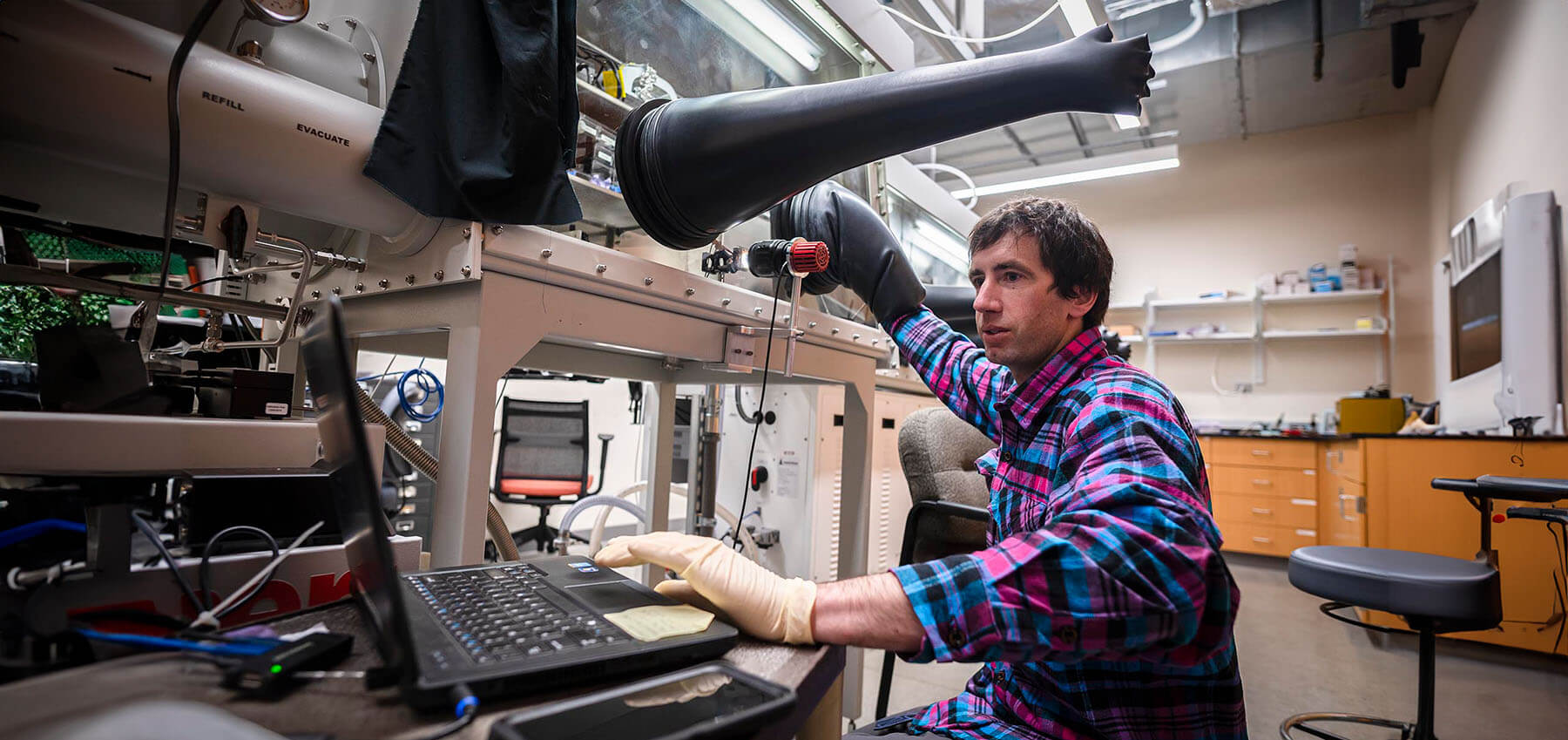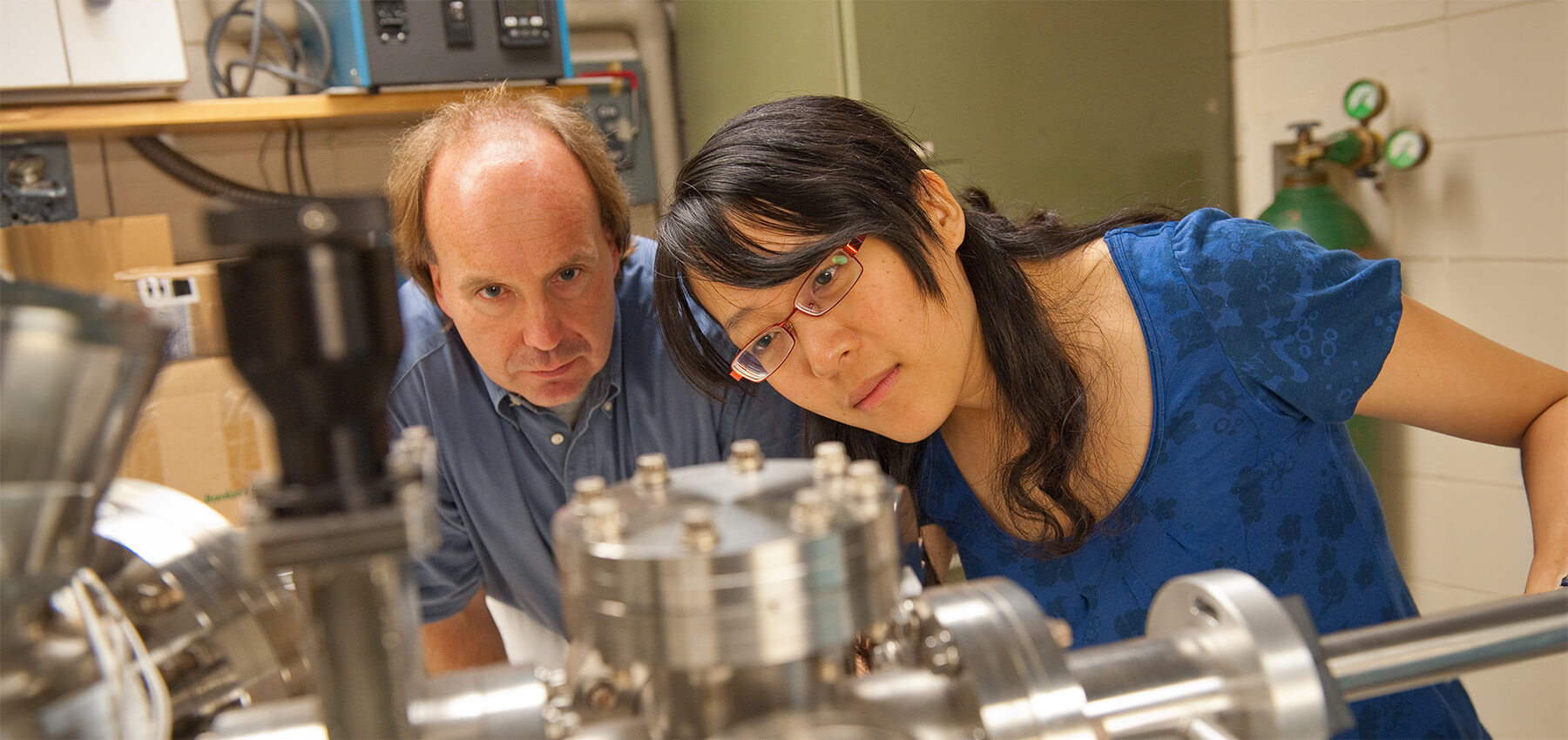Materials Science and Engineering
Type of Degree
CGS
School or College
College of Engineering and Mathematical Sciences
College of Arts and Sciences
Area of Study
Science, technology, engineering and mathematics
Program Format
On-campus, Full-time, Part-timeCredit hours to graduate
13 credit hours
Our Certificate of Graduate Study in Materials Science and Engineering aims to provide a unique and relevant learning program to prepare our graduates to work in materials industries or pursue doctoral or postdoctoral studies in this importantl interdisciplinary field.
Loading...





